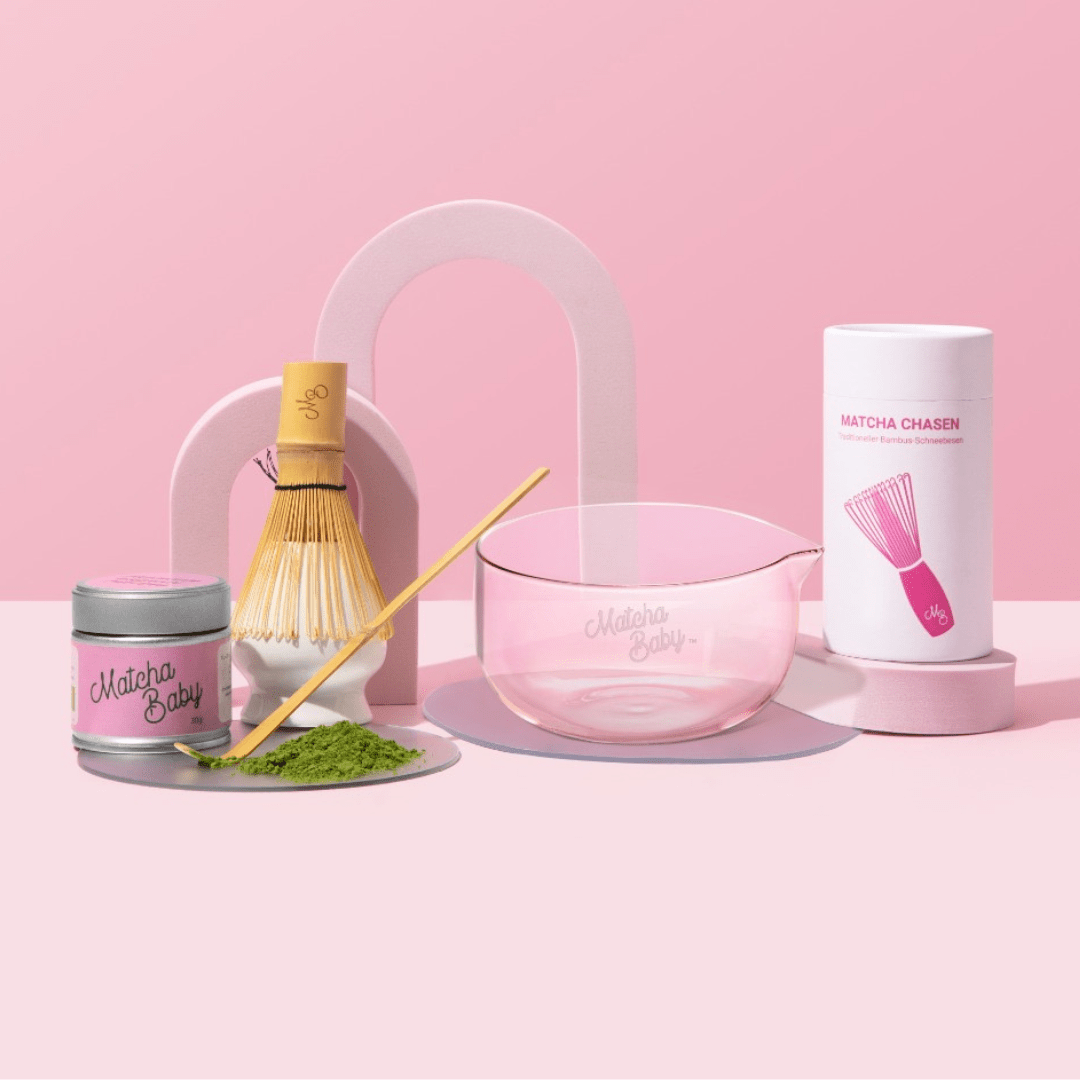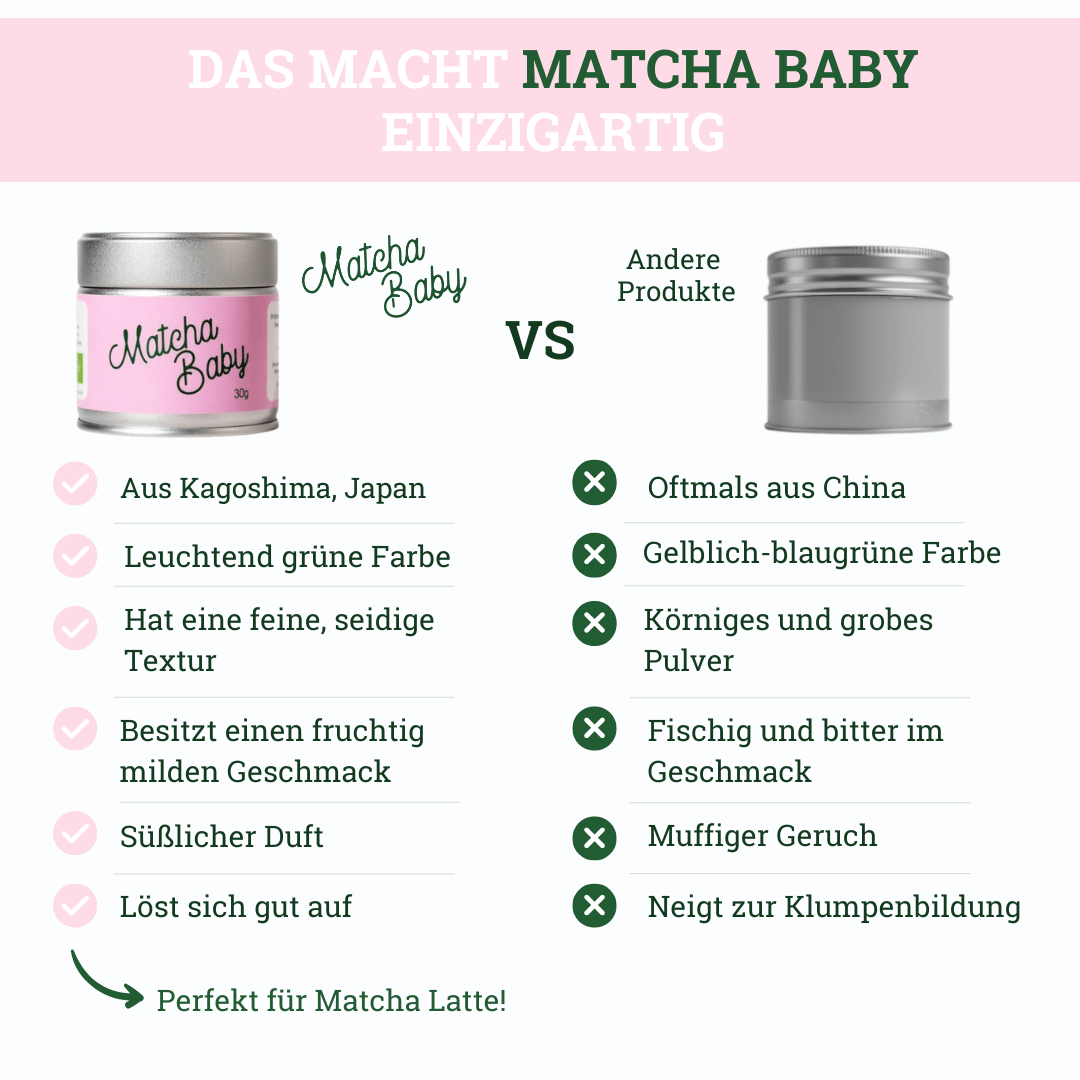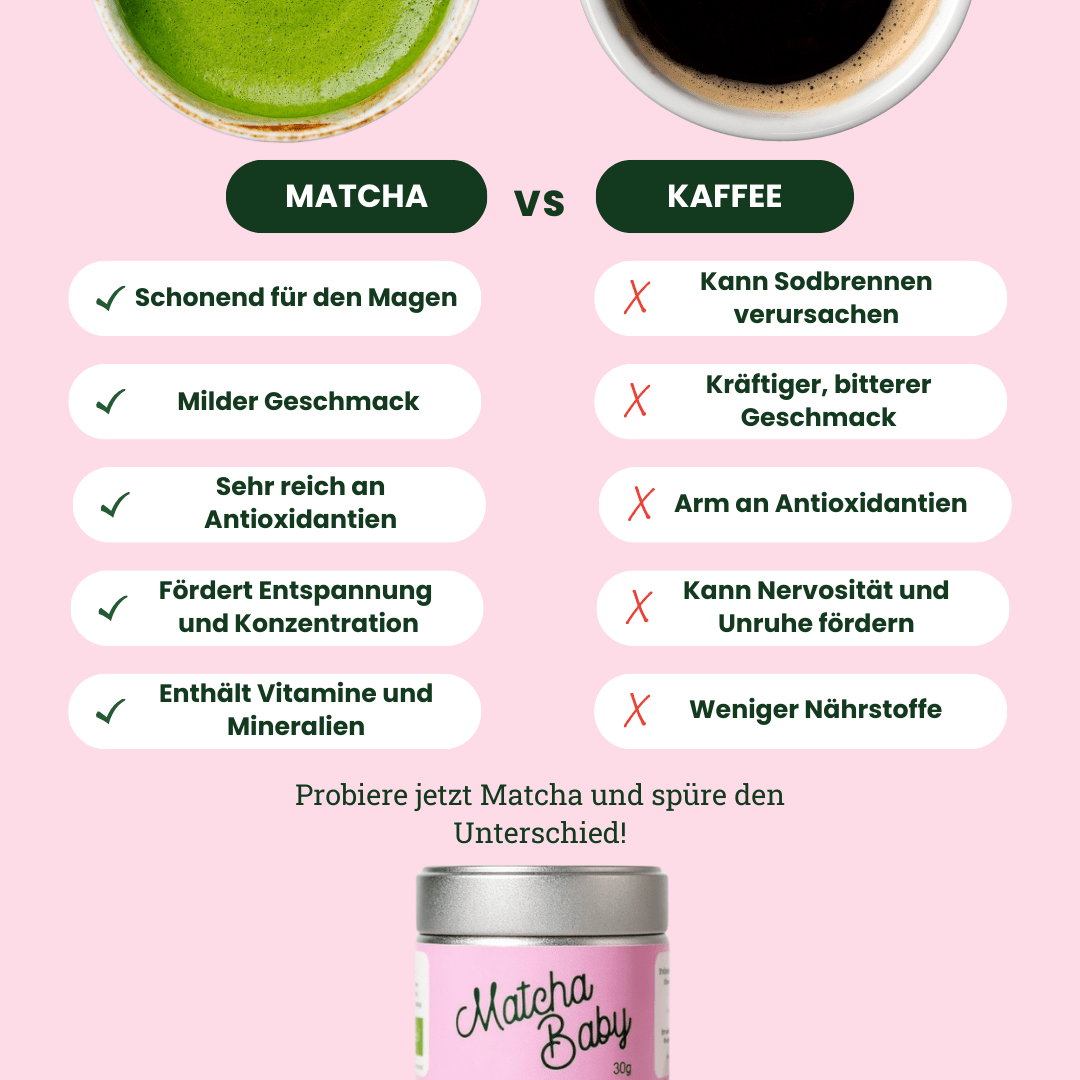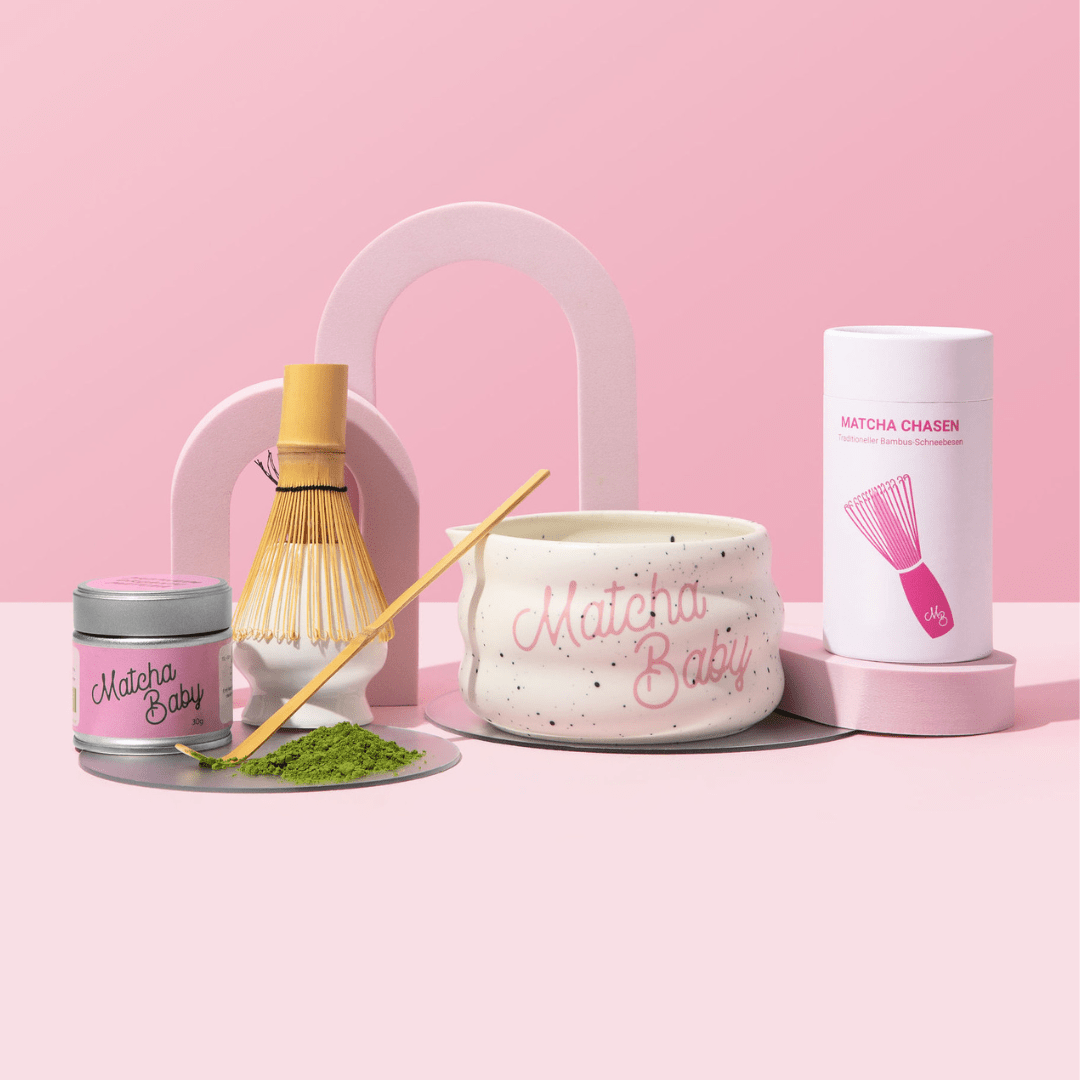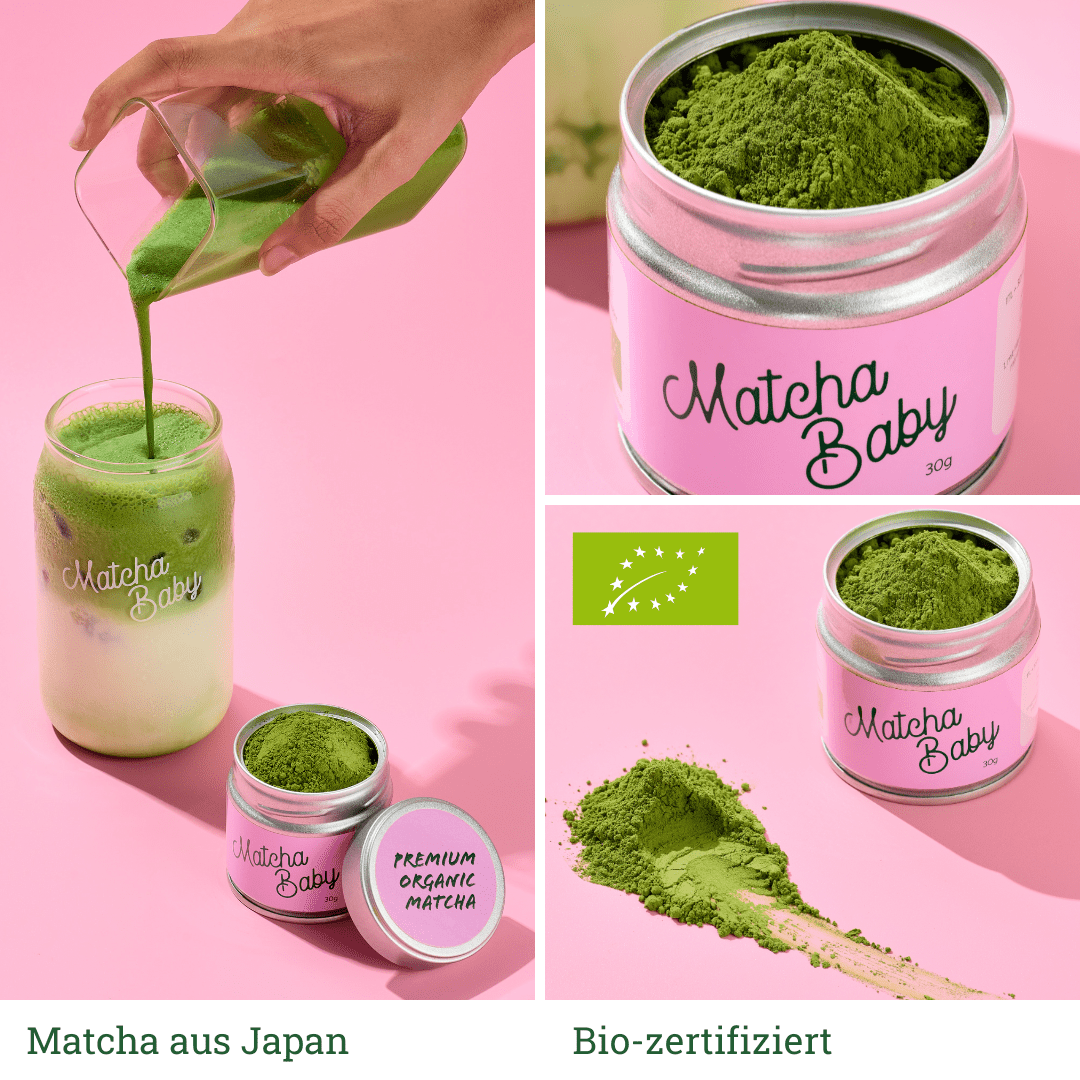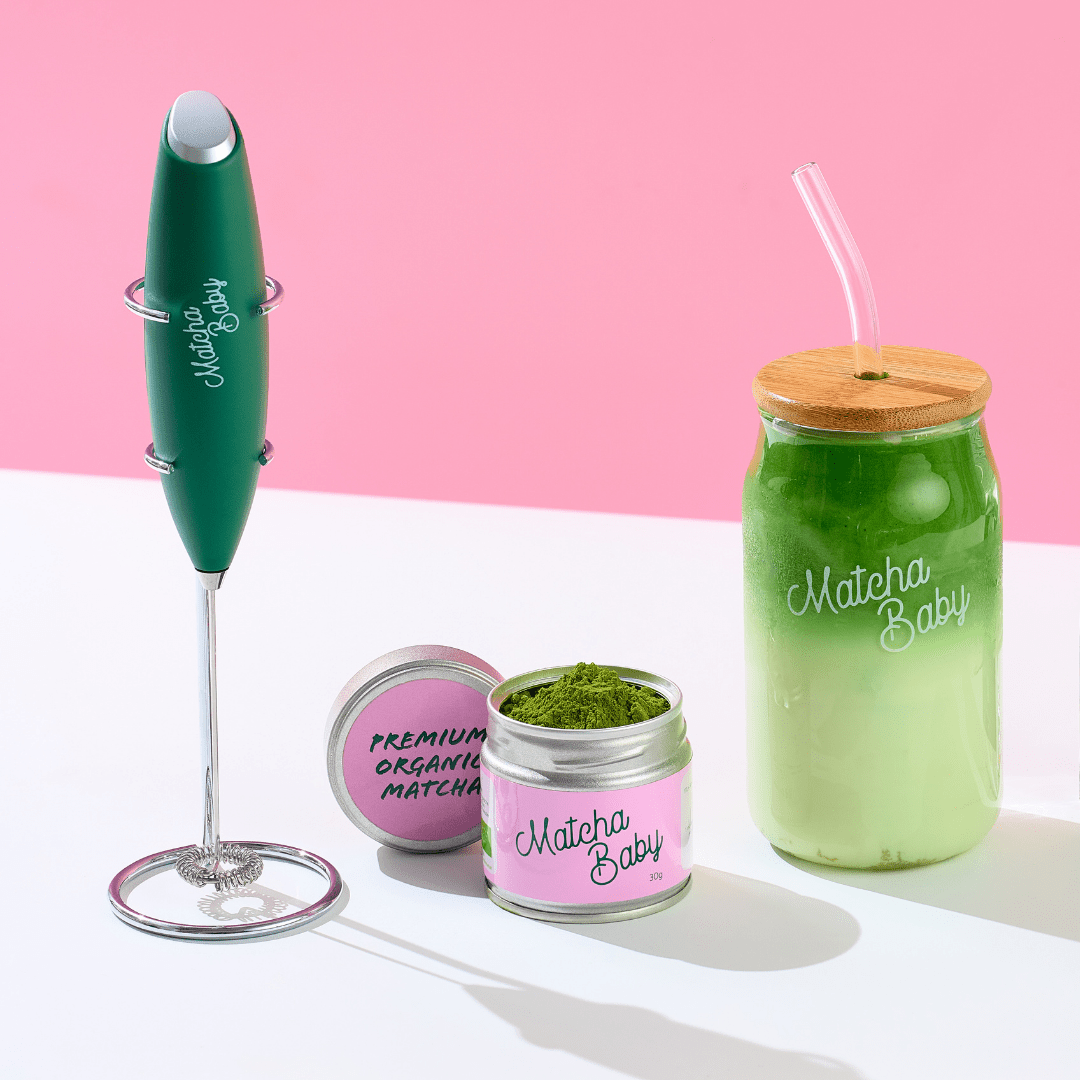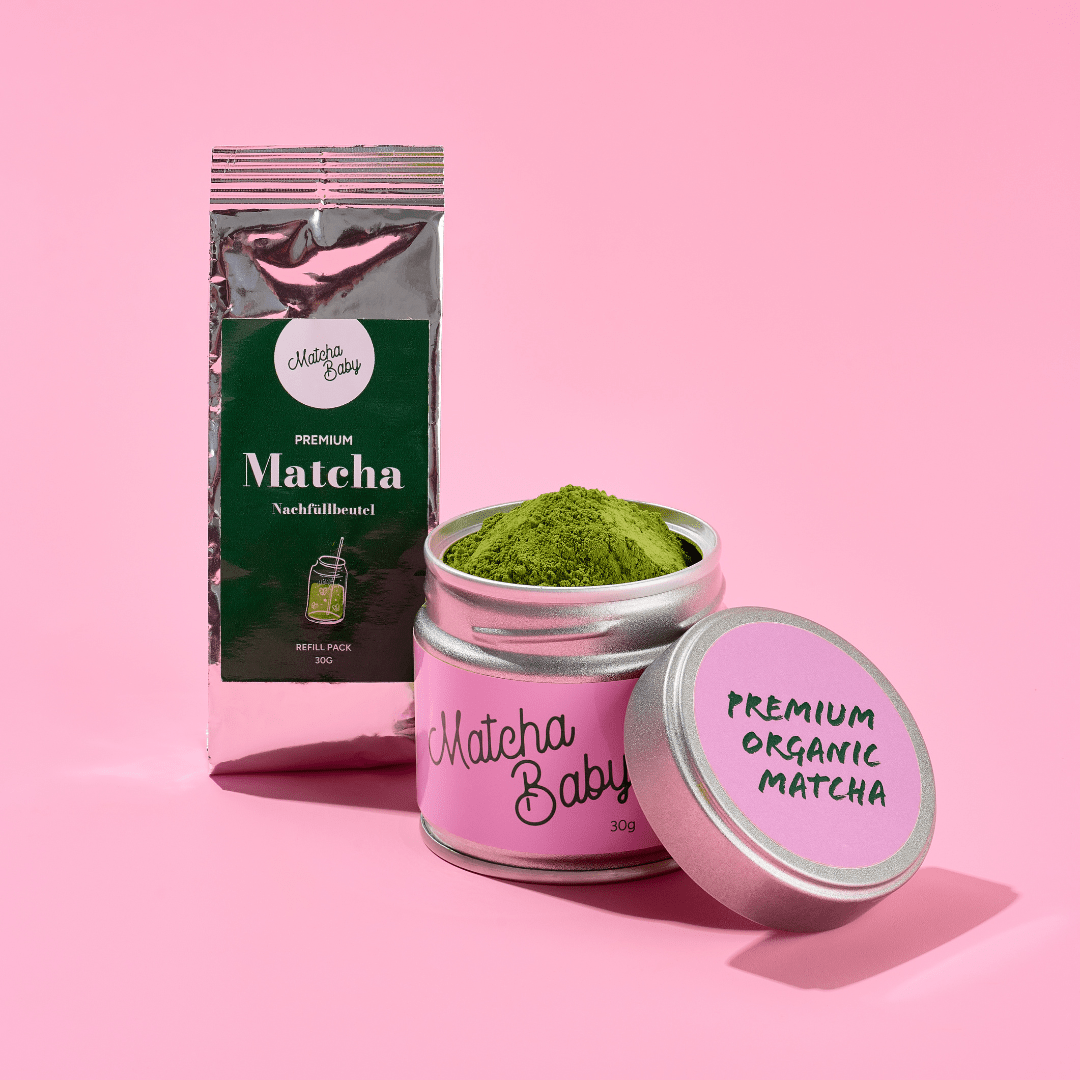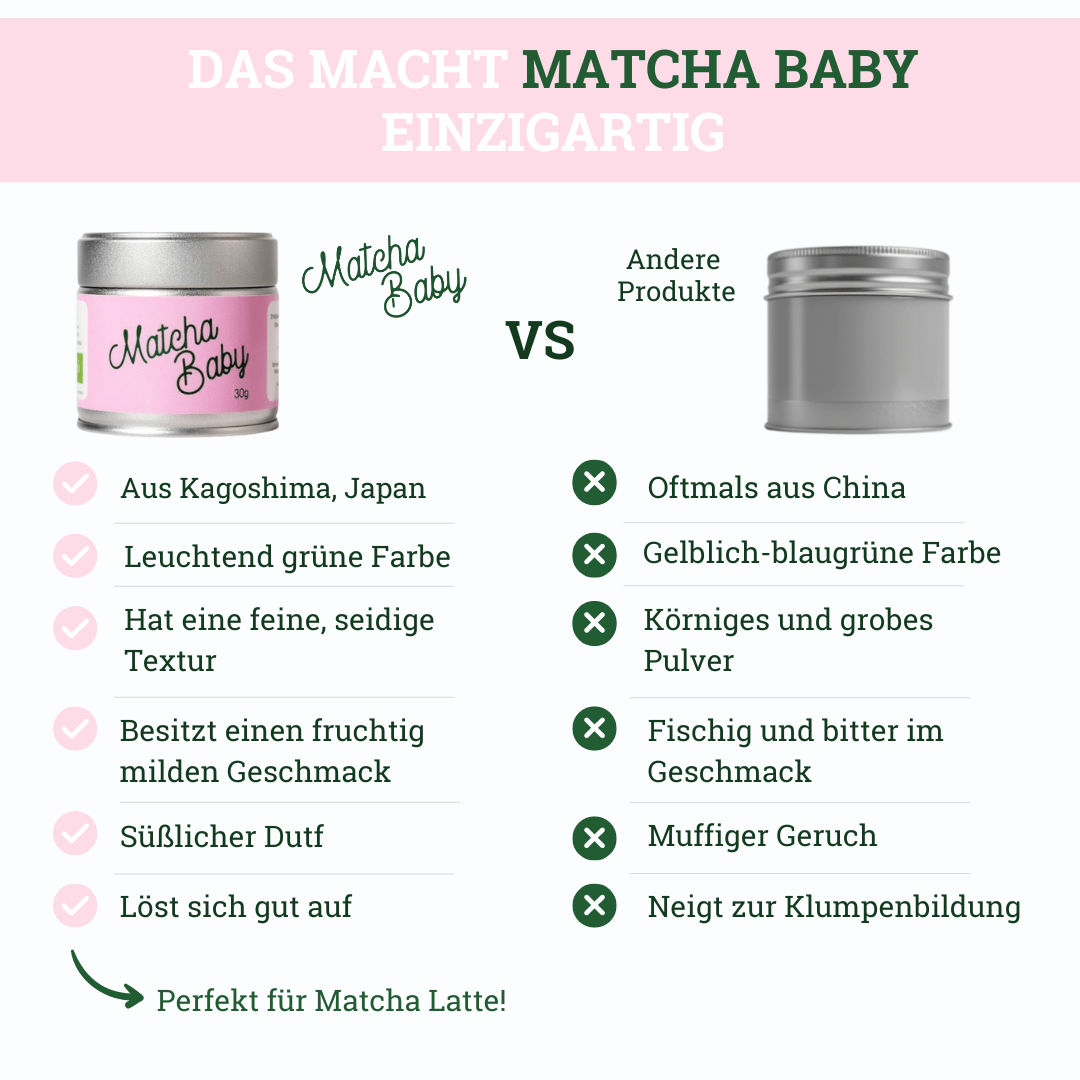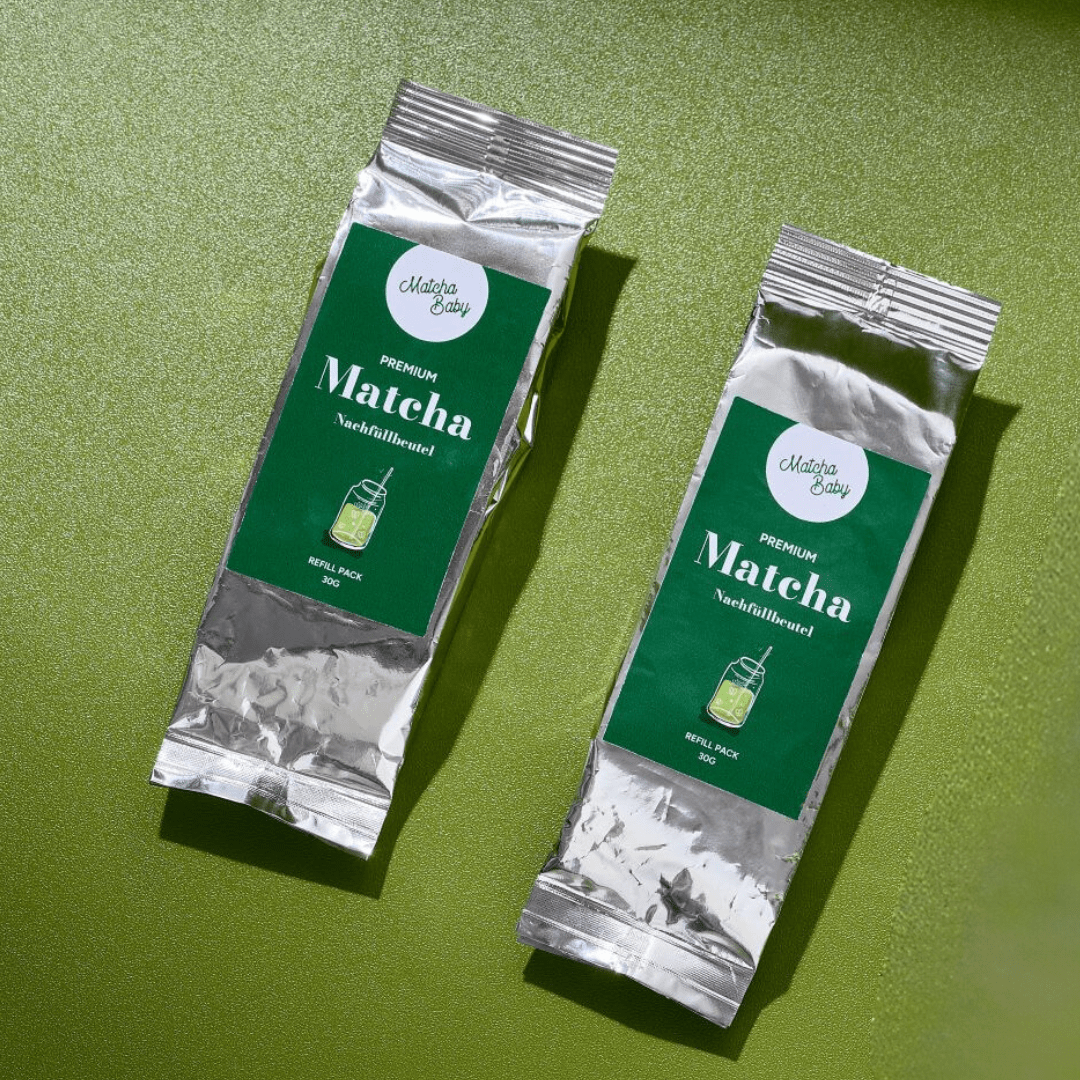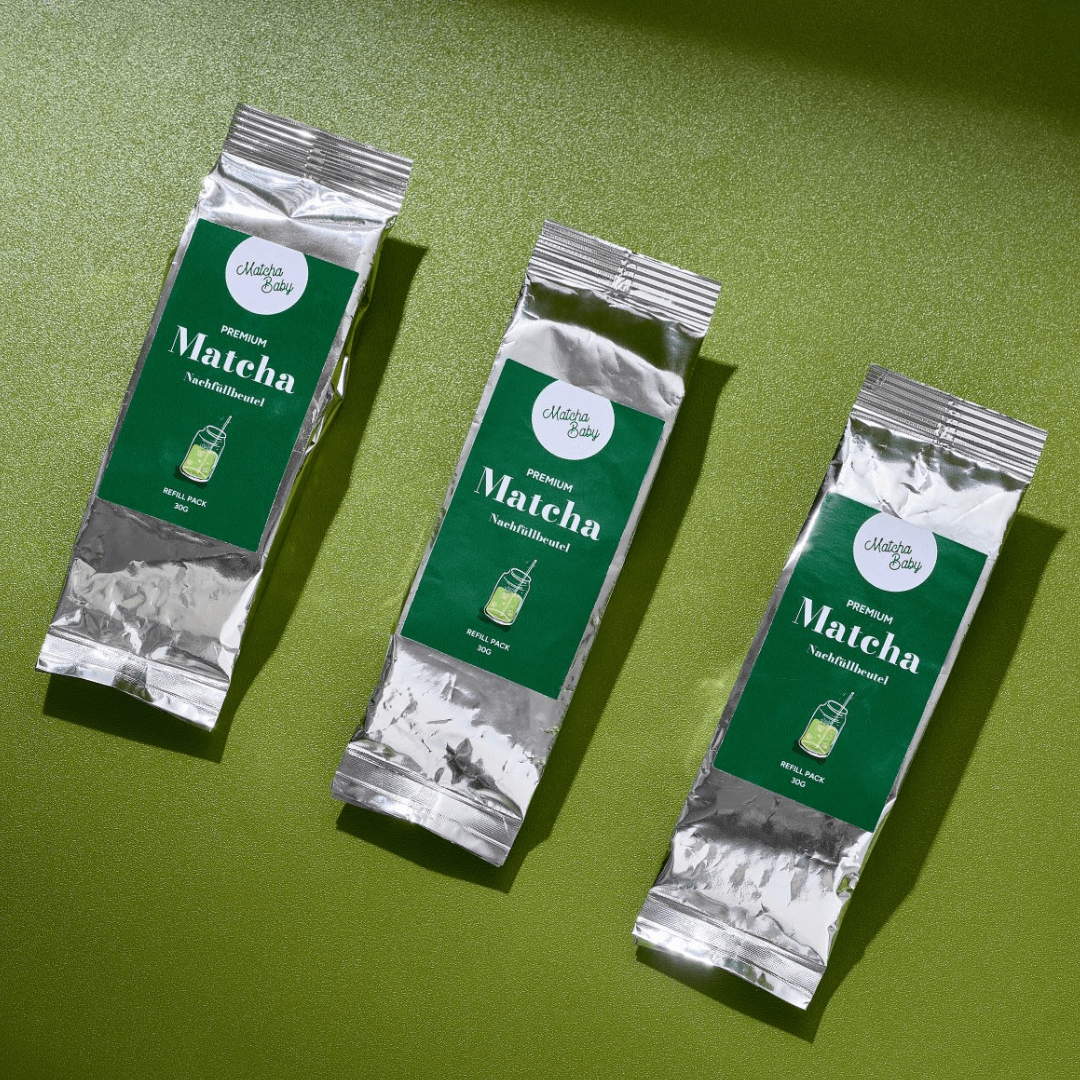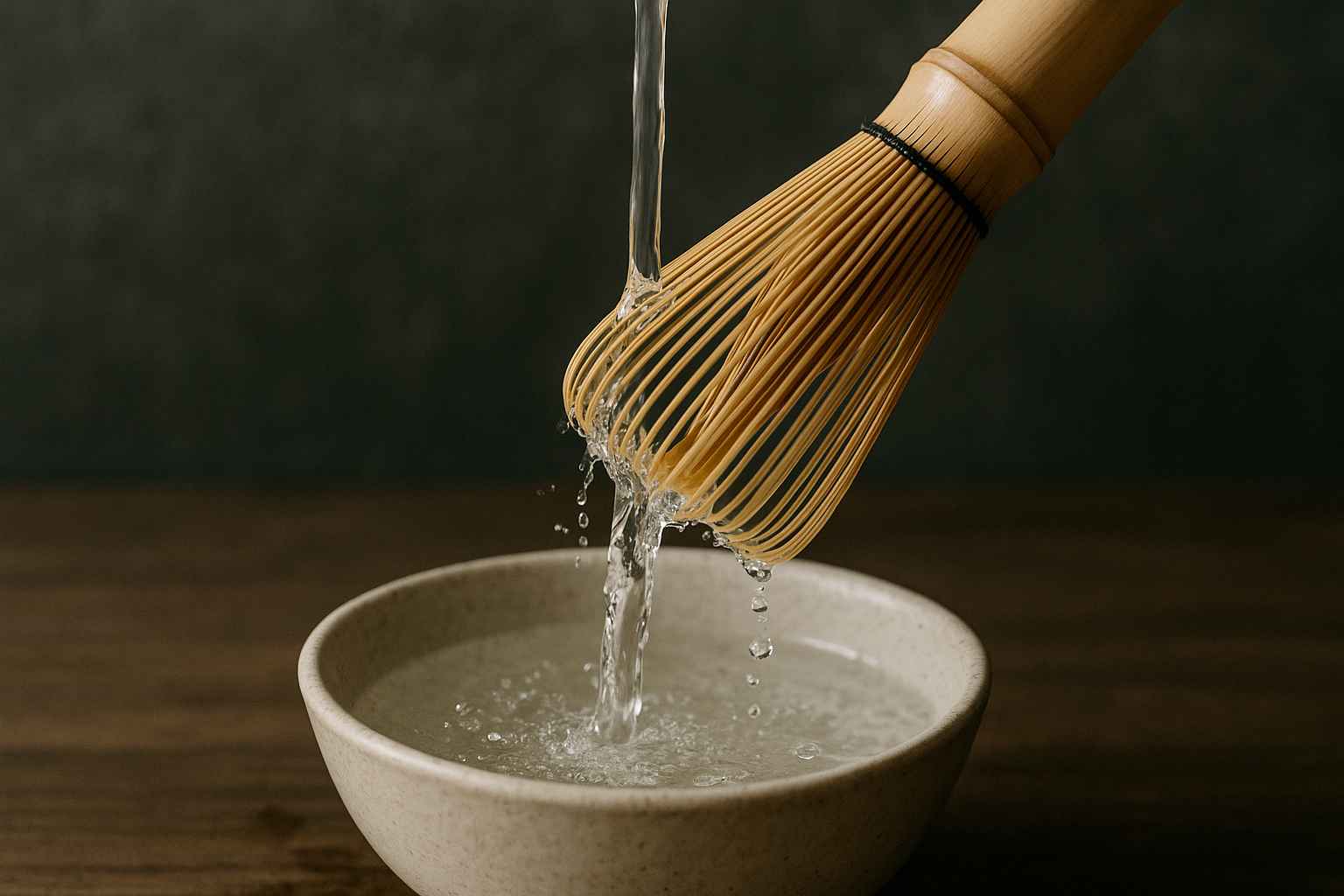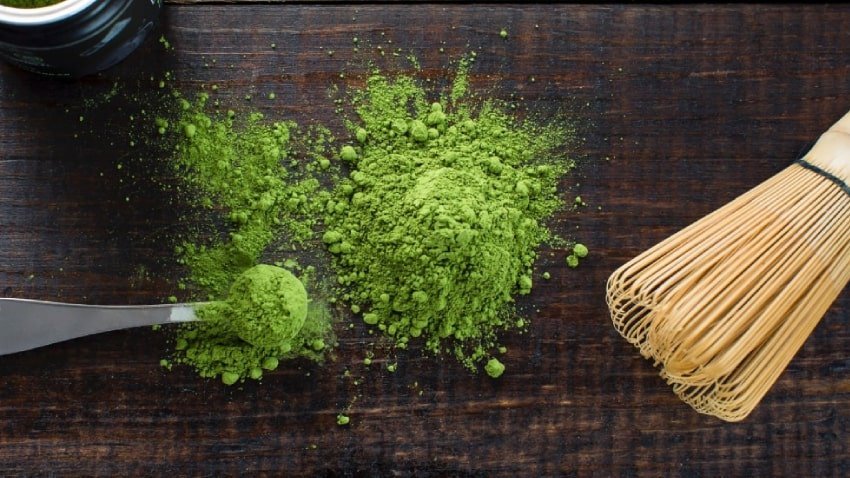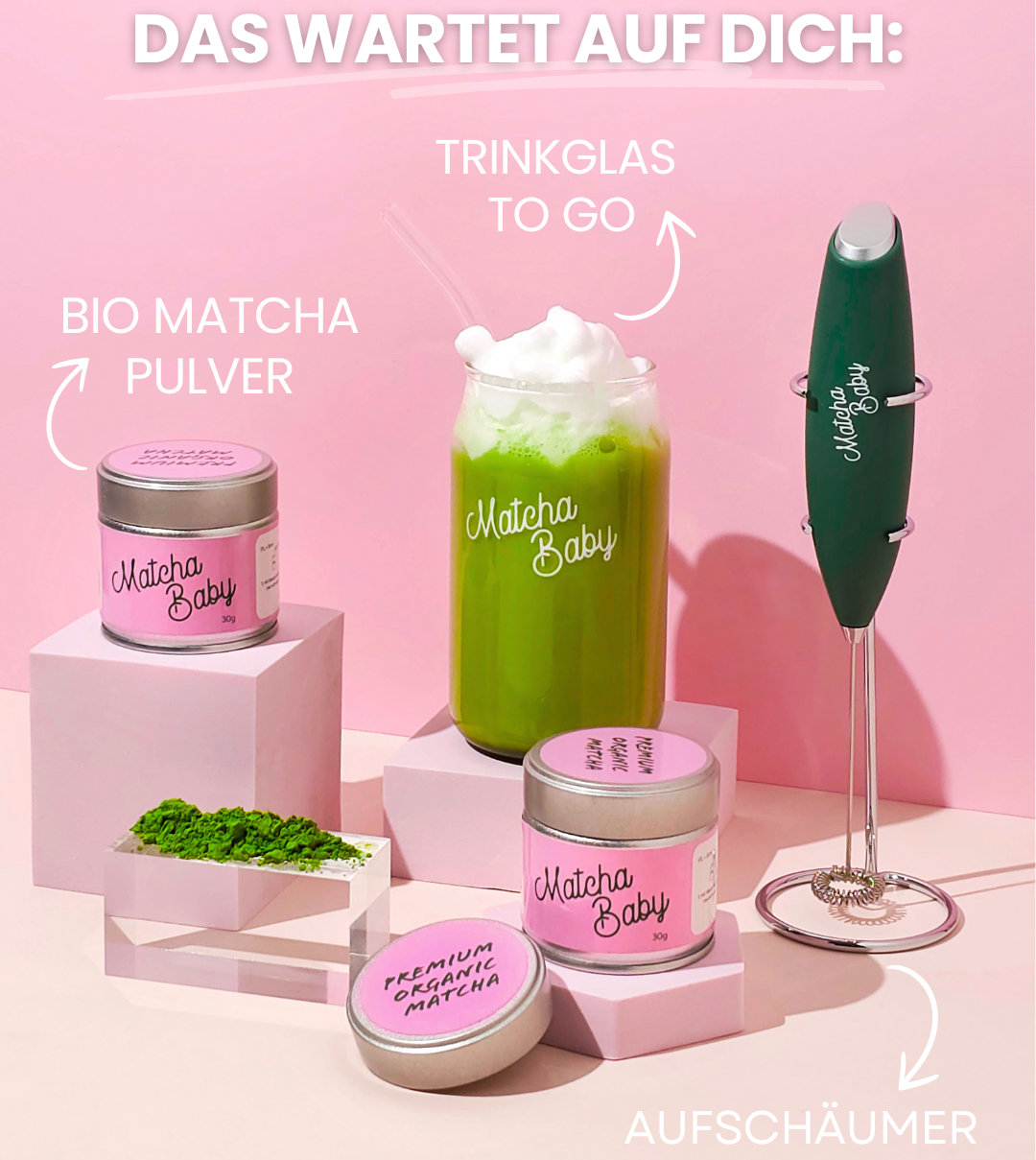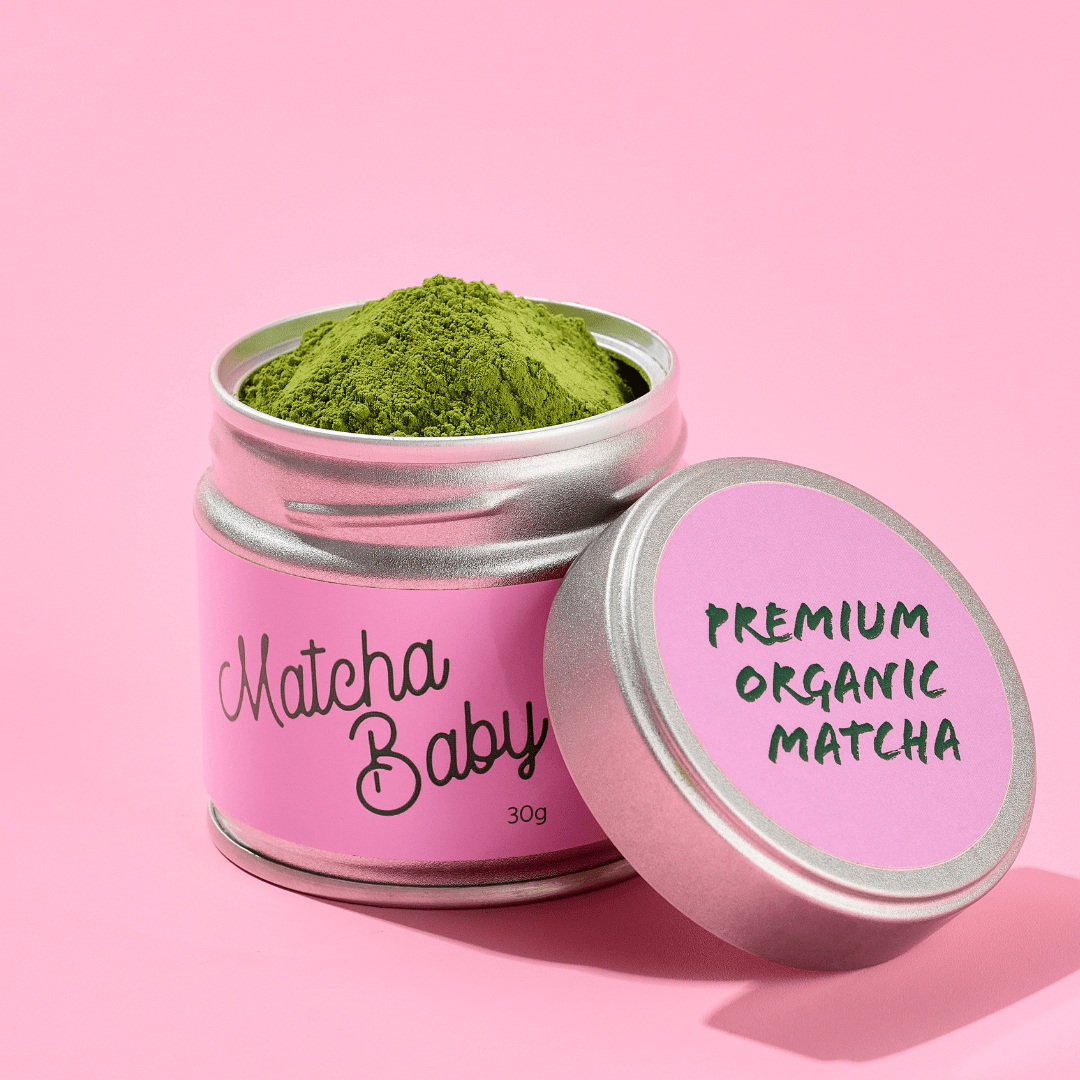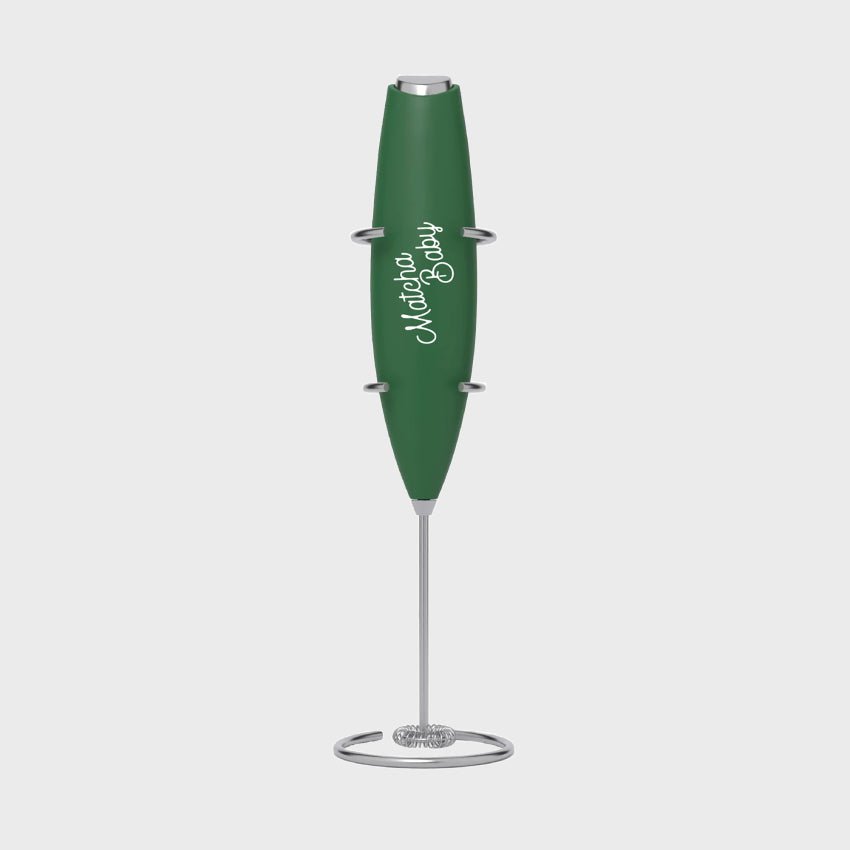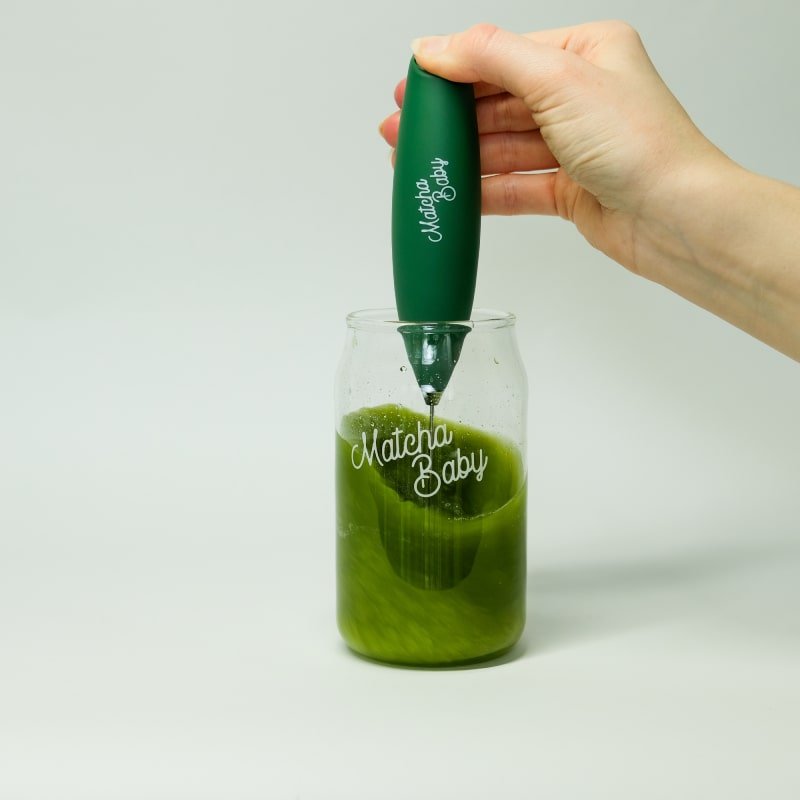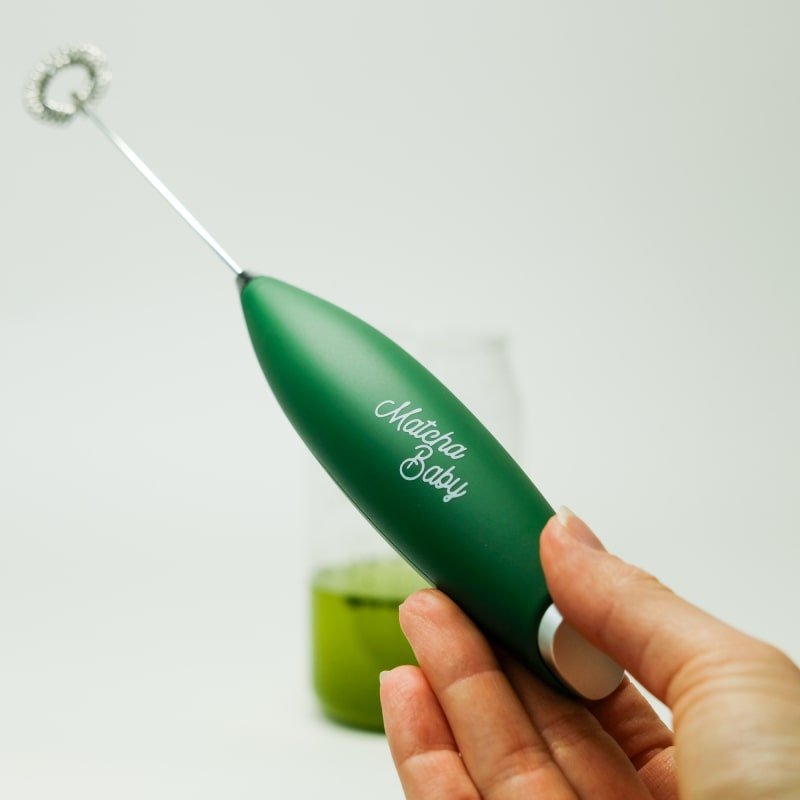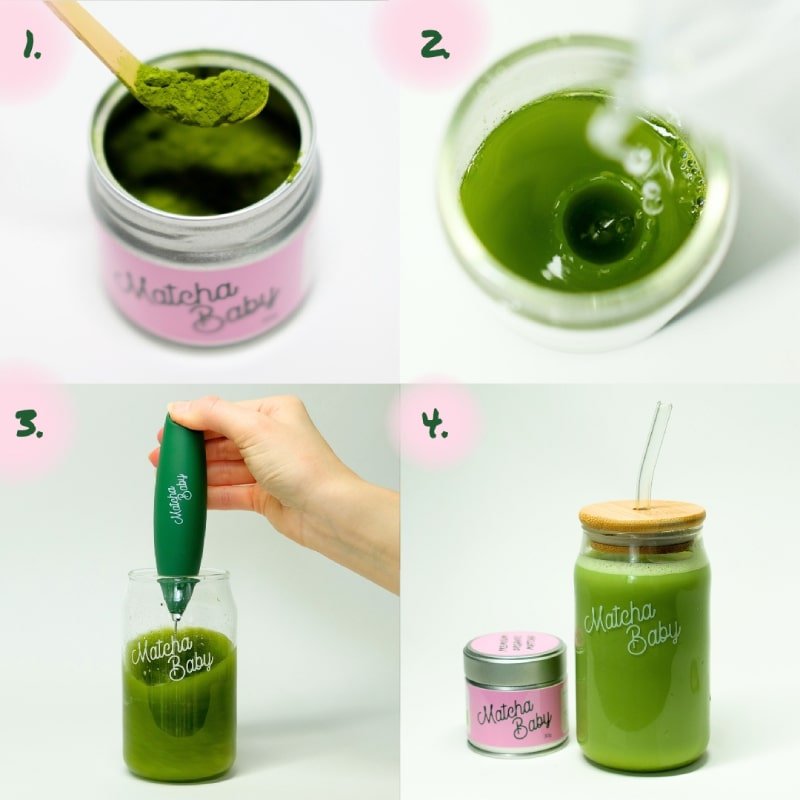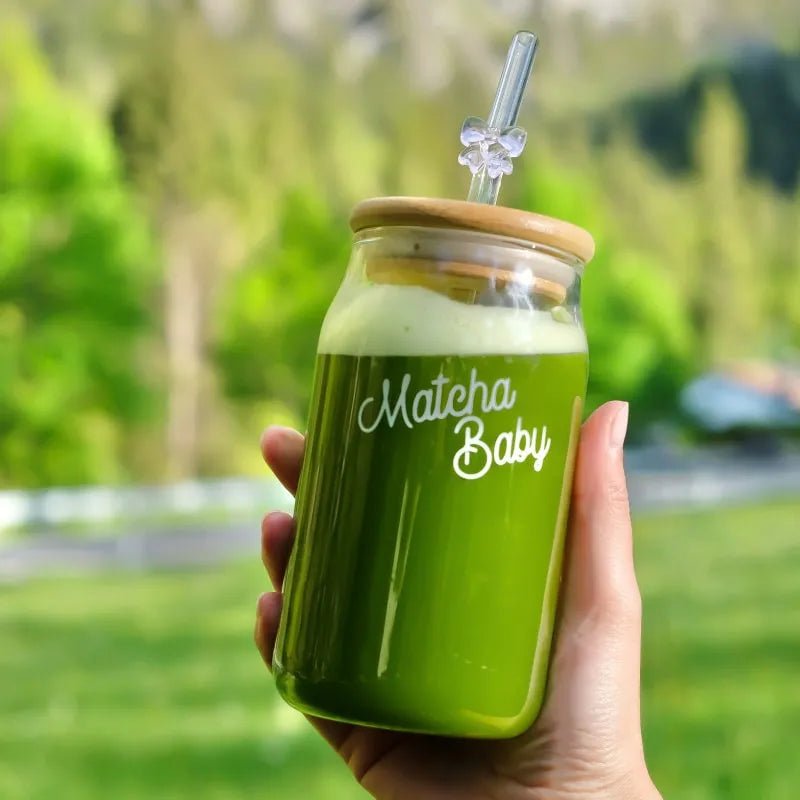Matcha ingredients

Matcha Ingredients: Benefits of Matcha Green Tea
Are you looking for a healthy and refreshing drink with numerous health benefits? Then matcha tea , matcha latte , and matcha smoothies are just the thing for you!
Matcha is a type of green tea that is finely ground into a powder. Matcha has been a popular beverage in Japan for centuries and is now enjoying increasing popularity worldwide. In this article, we'll explore the nutritional benefits of matcha and explain why it should be a staple in your daily routine.
What ingredients does matcha tea contain?
Ground green tea is packed with a variety of nutrients, making it a true superfood. A cup of matcha tea not only glows a beautiful green, but also contains the following nutrients for your body:
Catechins (antioxidants)
Matcha is rich in catechins, a type of antioxidant. The green powder contains approximately 137 times more catechins than regular green tea. Catechins are known to fight free radicals in the body that can lead to cell damage and chronic diseases, thus demonstrating good antioxidant capacity.
However, the exact amount of catechins in matcha and other green teas can vary depending on the variety, growing region, and production process. However, matcha is known to have a higher concentration of catechins than regular green tea due to its specific growing and production process.
L-Theanine
Matcha also contains L-theanine. This substance is an amino acid and a key ingredient in matcha, known for improving brain function and reducing stress. The amino acid ensures that the caffeine in matcha is released more slowly, resulting in a gentler energy boost. This way, you won't experience the familiar caffeine jitters and crashes.
L-theanine also has a calming effect on the brain. It helps reduce stress and anxiety and promotes the production of alpha waves in the brain, which are associated with a relaxed and alert state of mind.
Another benefit of L-theanine is that it increases the production of dopamine and serotonin in the brain, which can lead to improved mood and increased concentration.
Vitamins and minerals
Matcha contains a variety of vitamins and minerals that are essential for our bodies. These include vitamin C, selenium, zinc, and magnesium. These nutrients work together to create a healthy immune system, promote healthy skin, and support general bodily functions.
Matcha also contains vitamin A, which is important for our eyesight and skin health, as well as vitamin K, which ensures blood clotting and bone formation.
In terms of minerals , matcha is particularly rich in potassium, which is important for healthy heart function. Matcha is also rich in iron, which is essential for the formation of red blood cells. Matcha also contains calcium and magnesium, which have a relaxing effect on the body and help regulate blood sugar levels.
Chlorophyll
Chlorophyll is another important ingredient in matcha powder, which not only gives it its characteristic light or dark green color, but also offers a number of health benefits. Chlorophyll has been shown to contribute to detoxification of the body, promote healthy digestion, and support the immune system.
This natural antioxidant helps neutralize free radicals in the body, thus reducing inflammation and cell damage. Chlorophyll is truly a miracle cure, and we're grateful that our beloved matcha powder contains so much of it.
Matcha vs. regular green tea
While regular green tea is also known for its health benefits, matcha has a much higher concentration of nutrients due to the way it is processed.
With regular green tea, the leaves are steeped in hot water and then discarded—you essentially just drink the tea water. With matcha, however, the whole tea leaves are ground into a fine powder and consumed whole. This means you get the full nutritional value of the tea, not just a small portion.
One or two cups of green tea a day are very beneficial to your health and also give you a high level of concentration.
Incorporate Matcha into your diet
Ground green tea can be consumed in a variety of ways, making it easy to incorporate into your daily routine. Here on the Matcha Baby blog, we've already posted several recipes online where you can easily use matcha.
If you'd like to incorporate matcha into your daily routine, you can drink a cup of matcha tea in the morning or afternoon for a sustained energy boost. If you're a passionate smoothie drinker, you can simply mix the high-quality matcha tea into your smoothie. A few grams of matcha also work well in baking or adding to individual dishes: This way, you can add a healthy touch—and a bright green color—to your favorite dishes.
Matcha green tea is a superfood that offers numerous health benefits. Its high content of catechins, L-theanine, vitamins, minerals, and chlorophyll makes high-quality matcha tea an essential part of a healthy diet.
We're convinced that with its versatility and delicious taste, there's no reason not to include matcha in your daily routine! The green color alone should be reason enough.
Matcha: Ingredient FAQs
Does matcha tea contain a lot of caffeine?
Matcha tea contains caffeine, but not as much as coffee. One cup of matcha tea contains approximately 70 mg of caffeine, while a cup of coffee contains a full 100 mg.
Can matcha help with weight loss?
Yes, matcha can help with weight loss. Losing weight with matcha tea is possible because the tea stimulates the metabolism and supports fat burning.
Does matcha have any side effects?
No, matcha generally has no side effects. However, you should consume it in moderation, as it also contains a lot of caffeine, which can lead to sleep disturbances.
Can I drink matcha as a substitute for coffee?
Absolutely! Matcha is a great alternative to coffee, as it gives you a gentler energy boost without the familiar caffeine jitters and crashes.
Where can I buy matcha?
Of course at Matcha Baby ! 💚

